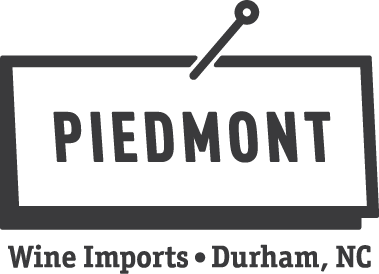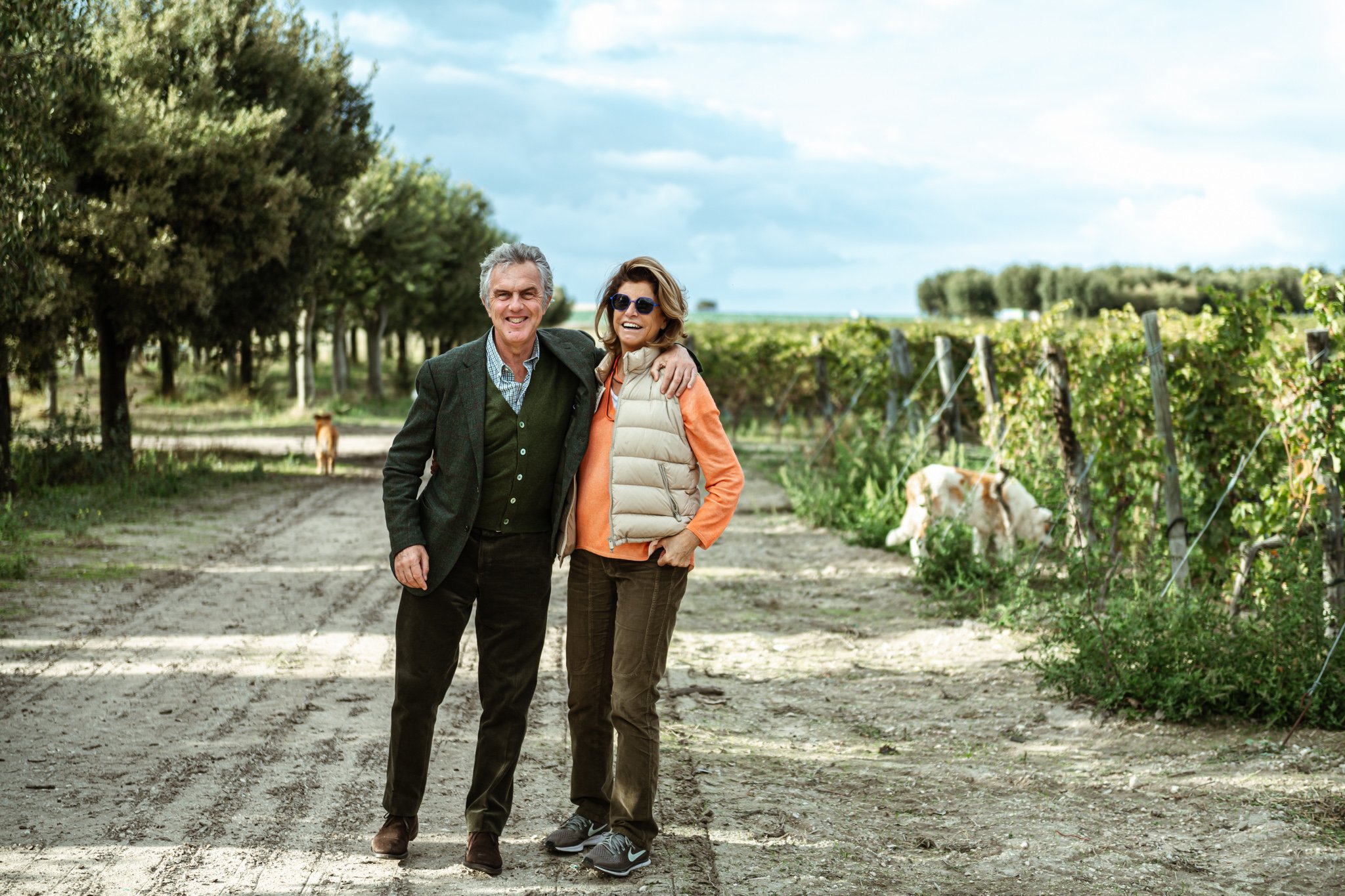
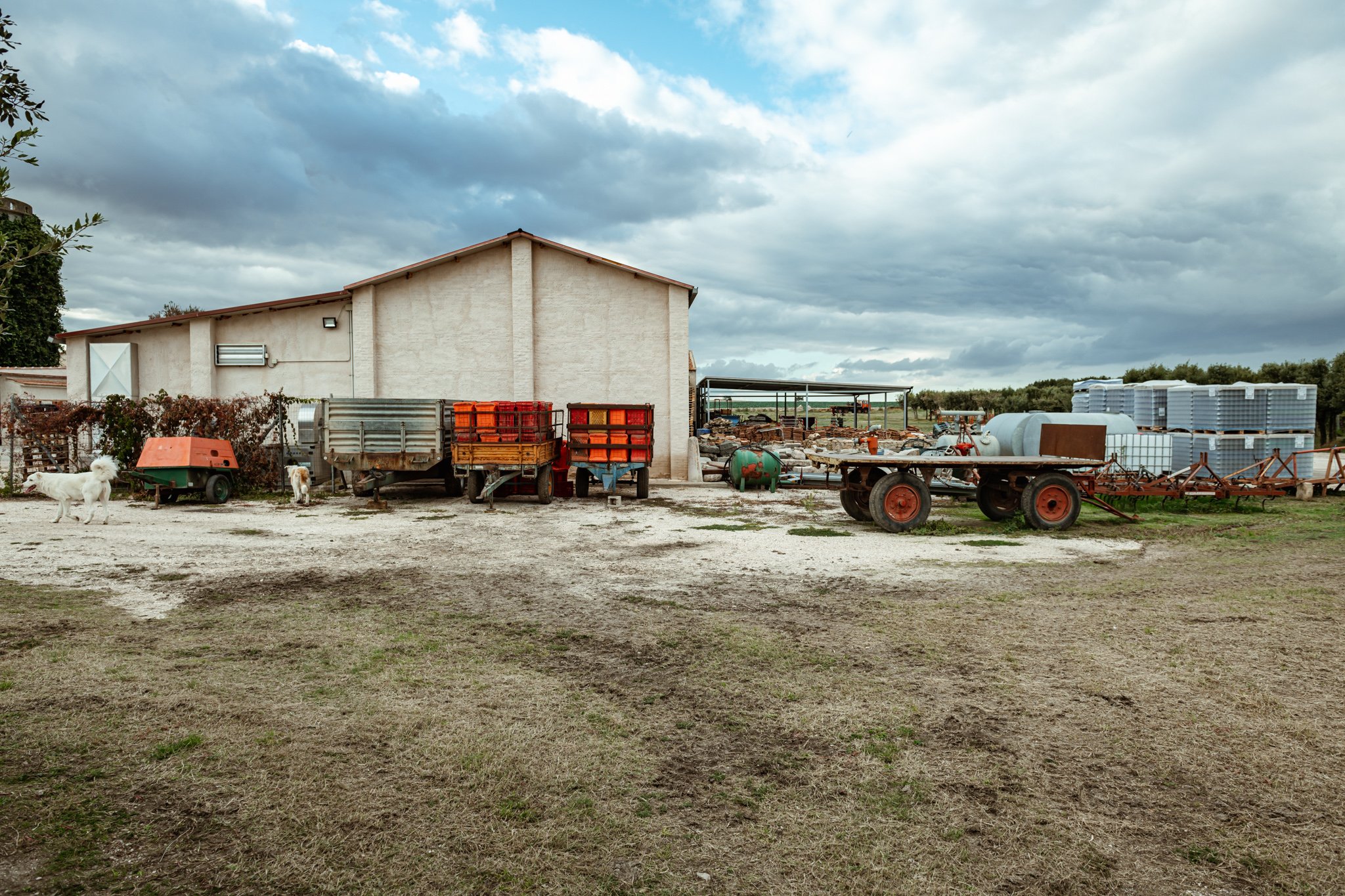
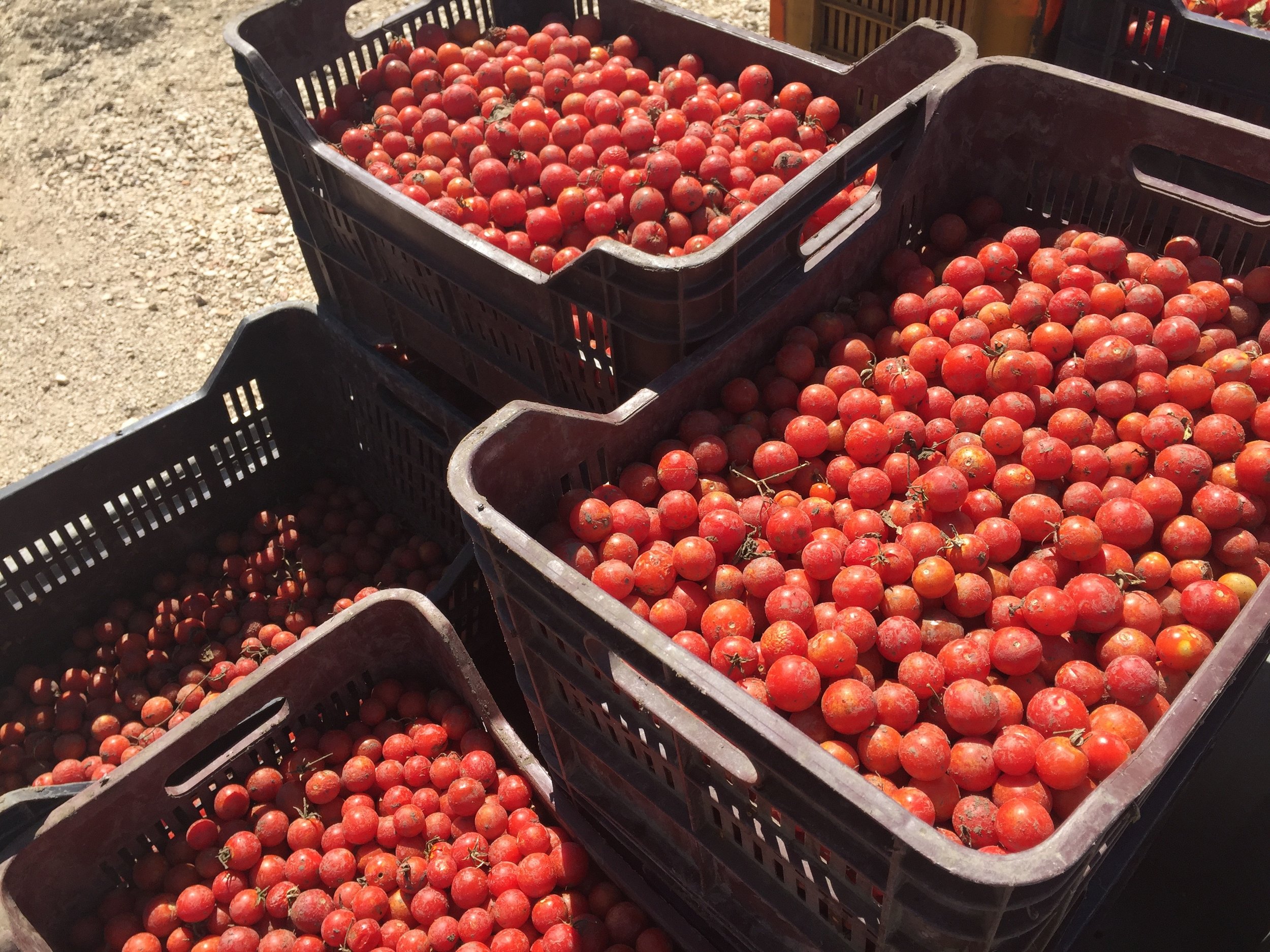
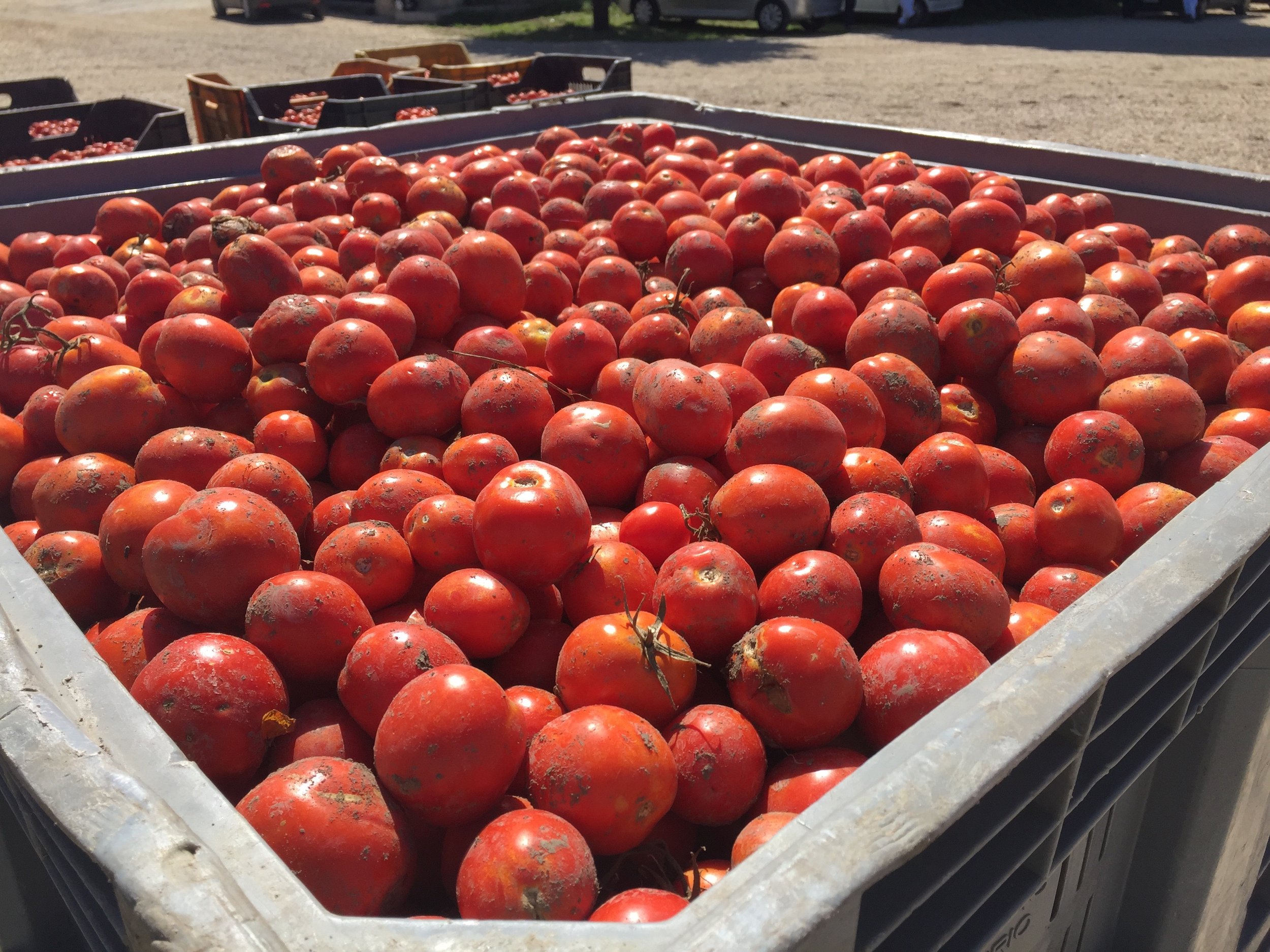
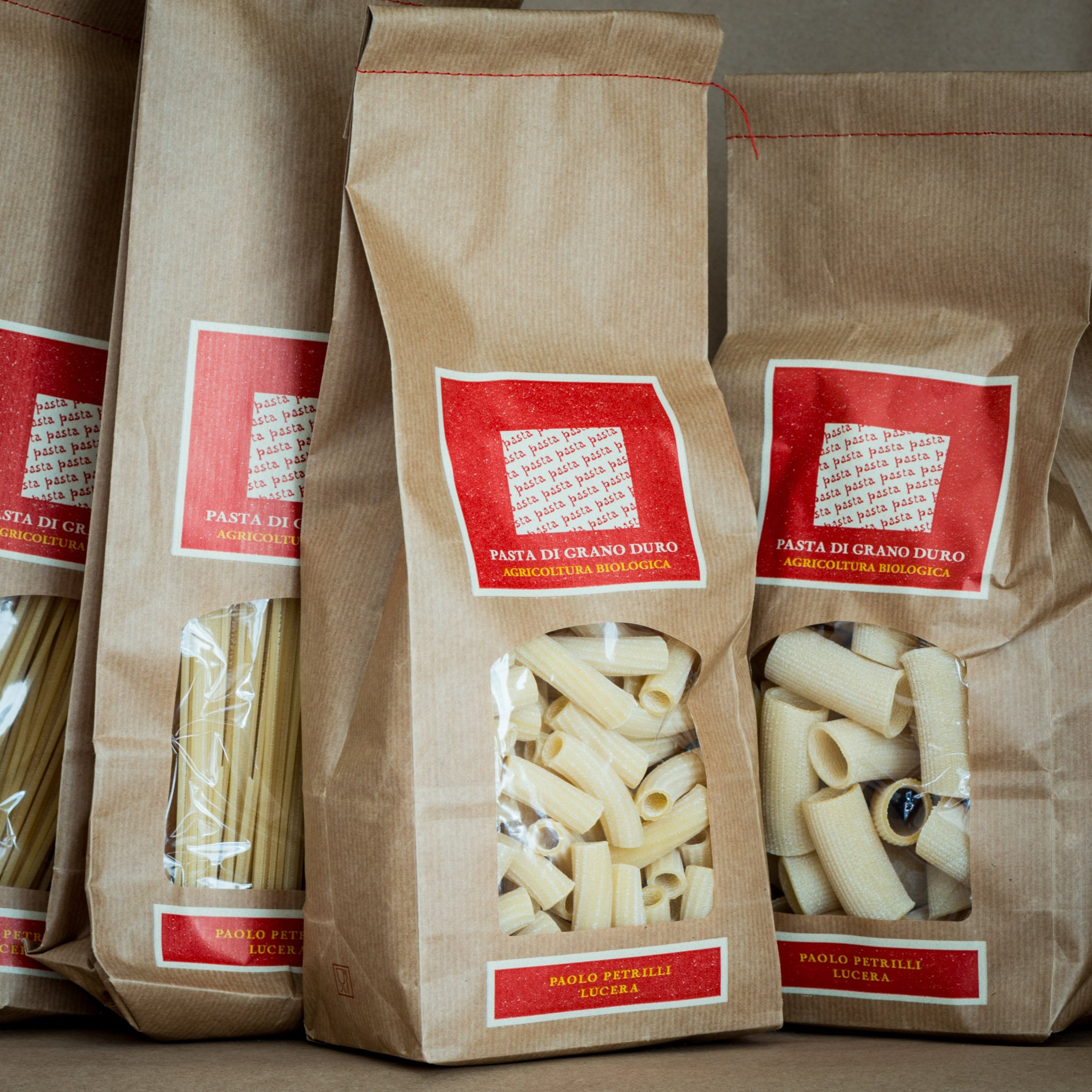
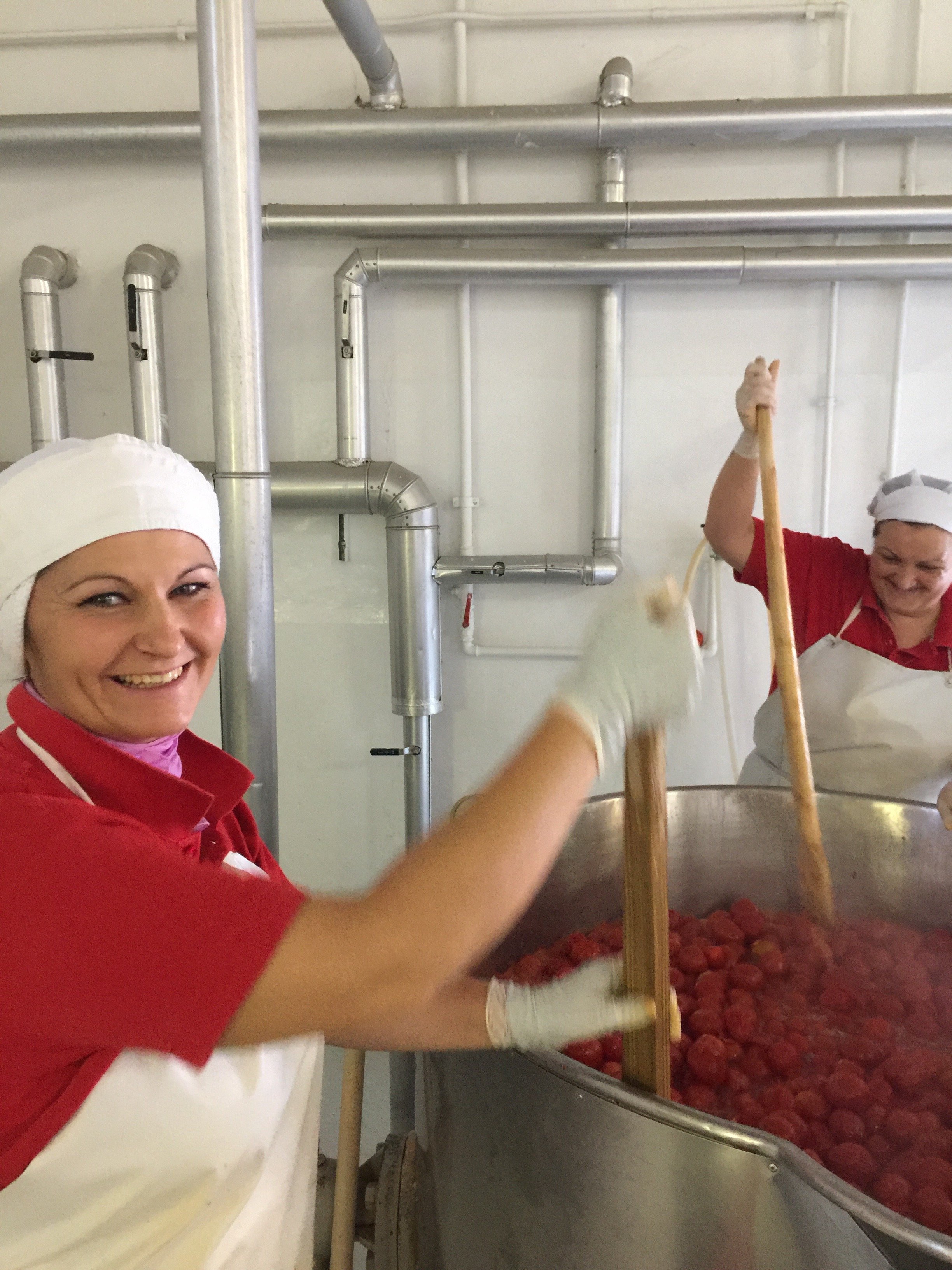
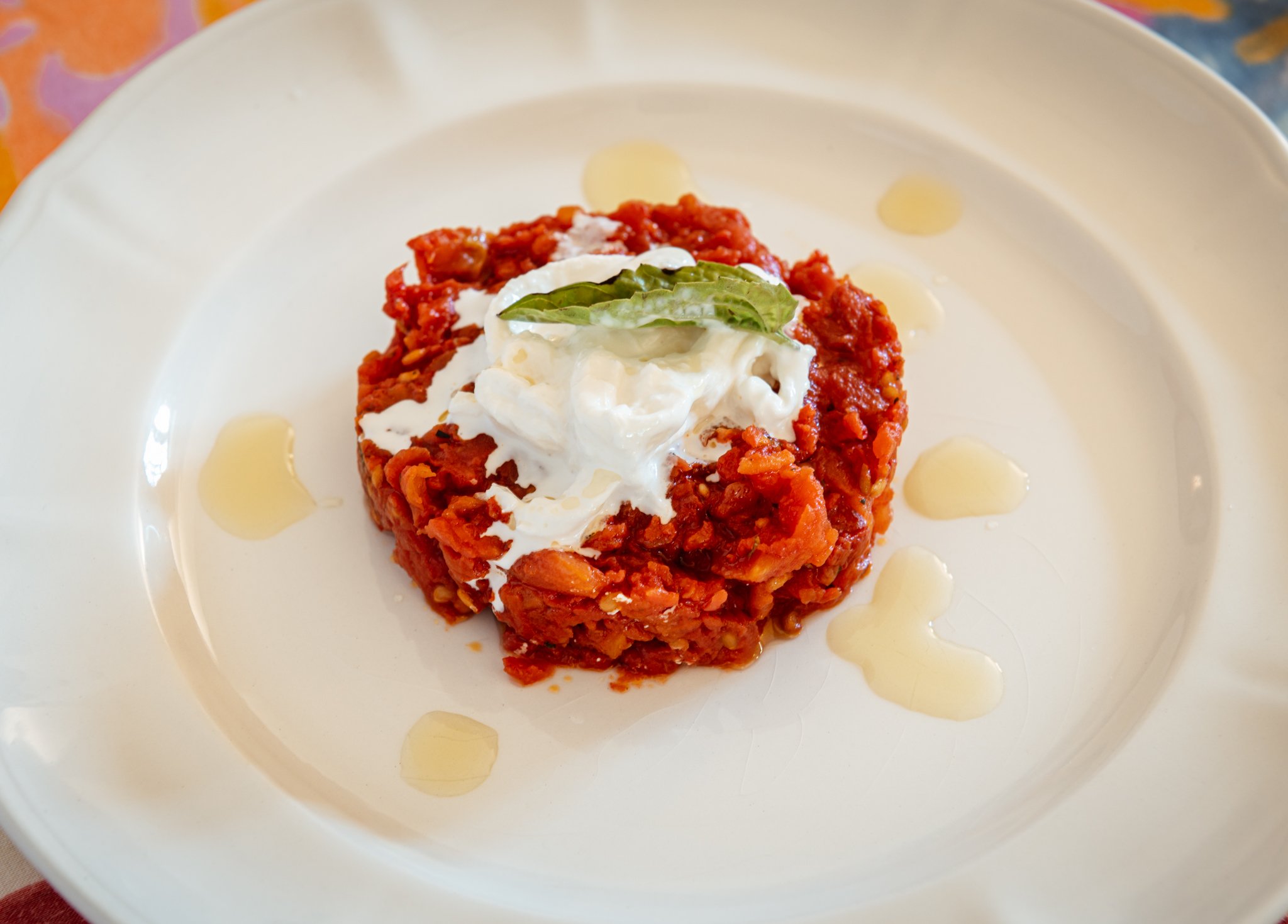
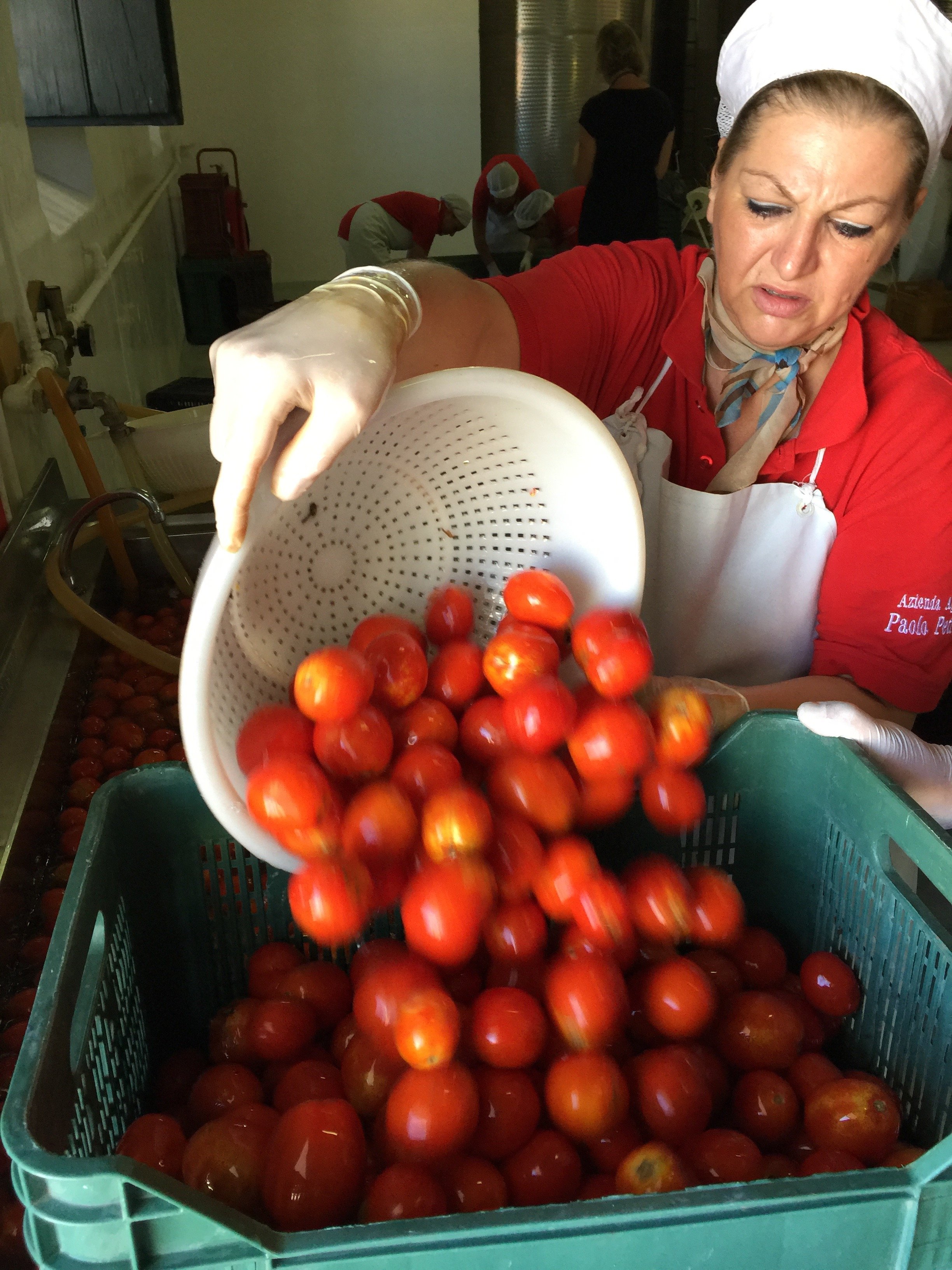
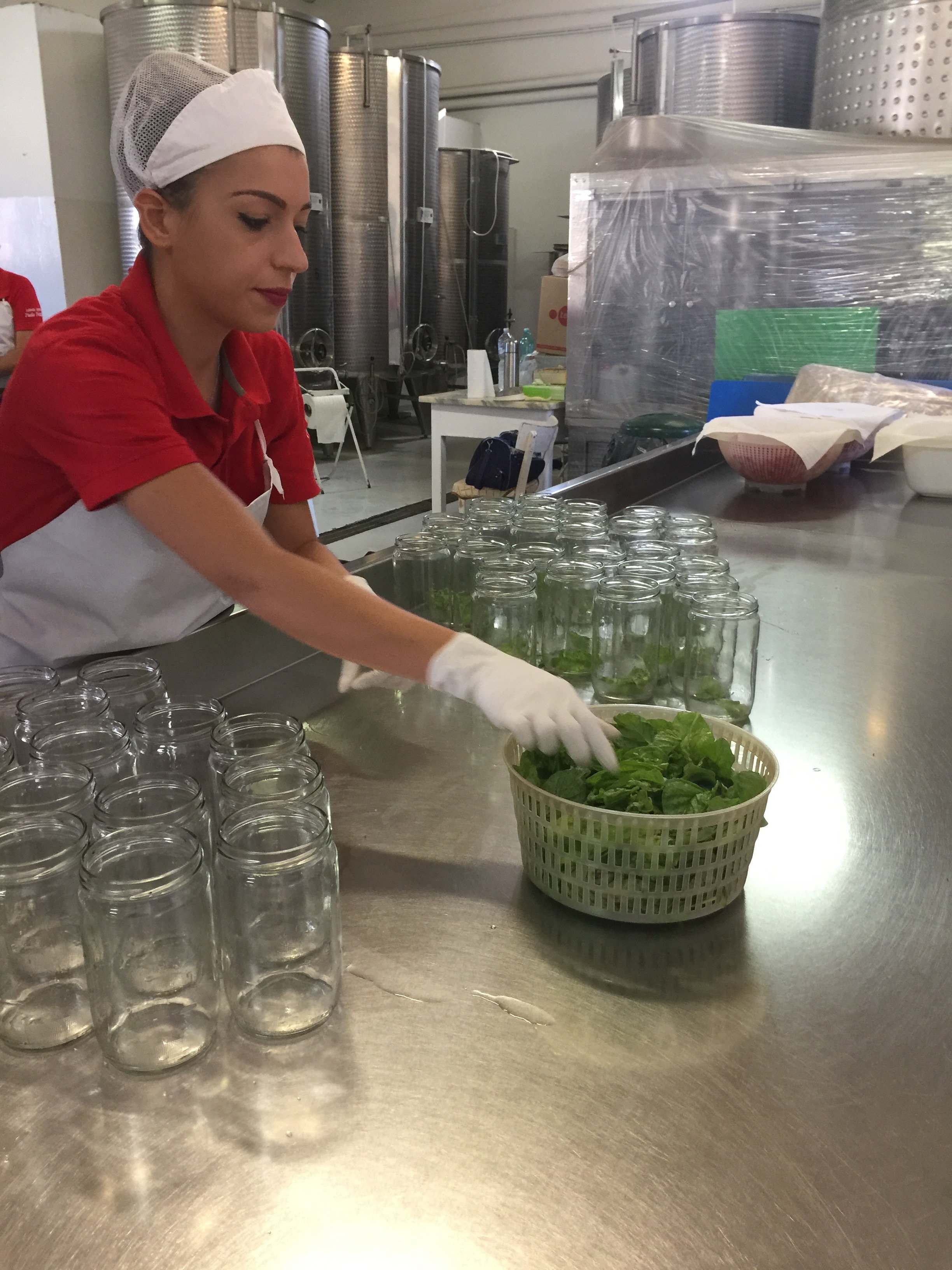
Paolo Petrilli
Who: Paolo Petrilli
Where: Lucera (Puglia, Italy)
What products: Bronze died pasta and preserved tomatoes
Key facts: Paolo’s certified organic wine, pasta, and tomato estate is a great place to discover the character of Nero d’Troia.
Website: https://www.paolopetrilli.it/en/
Instagram: @paolopetrilliaziendaagraria
Pastas
Viticulture: Organic
Soil type: Stony Clay
Elevation: 200m
Wheat: Hathor & Senatore Cappelli
Method of production: The weat is milledvery slowly, the grain of the semolina is thick and the extraction yield is low. An artisan pasta maker trasforms the bran into pasta, passing it trough bronze die and drying at low temperatures in small cells.
Penne Rigate
Rigatoni
Paccheri
Tortiglione
Spaghetti al Chitarra
Festoni
tomatoes
Viticulture: Organic
Soil type: Stony Clay
Elevation: 200m
Method of production: Blanched for a few seconds in boiling water, hand-peeled whole and packed in glass jars with a fresh basil leaf. No added colouring or preservatives.
Peeled Corbara Tomatoes
Tomatoes: Corbara elongated cherry tomatoes
Strained Tomatoes
Tomatoes: Two parts Torremaggiorese & one part Prunilli cherry tomatoes
Blanched together for a few minutes, drained in steel colanders to remove all the liquid.
Peeled Tomatoes
Tomatoes: Plum tomatoes picked when fully ripe
Tomato Fillets
Tomatoes: Plum tomatoes picked when fully ripe
Tomato Conserva
Tomato: Torremaggiorese and Prunilli
Strained in stainless steel strainers, air dried in the traditional method for twelve hours until reduced to 7 lbs. of concentrate for every 220 lbs. of fresh tomatoes.
Peeled Yellow Tomatoes
Tomato:
Paolo Petrilli visit September 2018. Tomatoes!
There is a barn on the side of the driveway leading to Paolo Petrilli’s house. Inside a dozen Puglian women and half a dozen men, dressed in red shirts, white pants and white aprons, white Wellington boots, gloves, hairnets and hats, are preparing jars of tomatoes. The building is the size of a small winery, and in fact shares similar equipment to a cellar (stainless steel tanks, for example.) It is adjacent to the buildings where Petrilli makes wine from Nero di Troia, Aglianico, Sangiovese, and Montepulciano. There are crates of fresh basil, colanders filled with peeled tiny Corbara tomatoes (like a cherry.) Tomatoes still wearing dirt from the Petrilli’s fields are delivered by a tractor one trailer-load at a time and brought inside, smaller ones collected in the cassette scrupulous Italian farmers use to pick grapes in 20kg increments, larger tennis ball-sized tomatoes delivered in pallet-sized plastic baskets. They are washed in colanders and soaked in blue plastic tubs that look like laundry baskets. Brilliant orange-red at this stage, they look otherworldly and delicious, a perfect encapsulation of southern abundance and fertility.
After blanching, the tomatoes are quickly peeled on large stainless steel tables by a team of women, and then deposited by the handful into quart jars, each containing a sprig of bright green basil. This is work and it requires effort and concentration, quiet counting as the little tomatoes are distributed, but there are smiles and quiet conversations in the room. Fans whirl overhead. There is the sound of steam and small machinery stirring liquid. Paolo stands in the doorway, talking to a foreman or field worker. On a small conveyer belt less than a dozen jars at a time move toward their final closure. Puree is poured in, green tops affixed. They wait on pallets for labeling.
Inside Petrilli’s home we are served a simple and delicious lunch of mezzi paccheri and diced tomatoes, topped with a sprig of basil. The sauce has essential goodness. It tastes clean, healthy, unfettered. We are alone with Paolo, but his family’s influence is here. The farm has become vegan after Petrilli’s young daughter converted to that philosophy. Paolo splits his time between Rome and his family’s ancestral farm. He says he prefers the country, but life in the city has considerable benefits for his children.
Outside in Paolo’s courtyard thirsty muddy hairy large dogs drink from a giant old stone trough. We’ve walked through fields to see Nero di Troia and Aglianico grapes essentially ready-to-harvest. Today all produce of the farm is certified organic, but it was not always this way, and the change was a decision Paolo’s father could not necessarily embrace.
“My father was born in 1916. People (in Puglia) still suffered from hunger. Producing as much as possible was the right thing to do.”
“The idea of a vegetarian granddaughter was not for him. You see Puglians, they are (generally) short people. This is because of malnutrition, absence of protein in the diet.”
The farm was completely destroyed in the war. Everything was rebuilt over the course of 20 years.
Paolo Petrilli’s farm is on our way out of Puglia. Or the way in I suppose. On this visit we are moving north and west, away from beaches and farms and stone medieval towns of Puglia’s eastern and southern coast. This farm feels a world away, technically Puglia but to my internal geography a transition zone more blatantly agricultural and tethered to the larger Italian peninsula above it.
After saying goodbye to Paolo we drove directly to Gragnano, a teeming layer cake of hillside neighborhoods that rises from the sea directly south of Naples. I wanted to visit Gragnano to learn about the barely fizzy ink-black low alcohol red the area makes. That plan was scuttled by coincidence. Paolo Petrilli’s pasta making facility is a few short blocks from the ridiculous hotel where we were booked for the evening, a riot of giant urns, tropical foliage, marble, and alarming cleaning product smells. There was a big wedding happening. Silver suits, abundant balloons, cute child ushers. Vesuvius hides in a massive white cloud in front of our lemon tree-lined patio.
Out on the street Vespas darted in every direction, sidewalk and roadway merged, traffic mostly crawled past piles of stores and teeming conversing locals. So much energy, peeling paint, unevenness. With remarkably little trouble given the density of life here, we find l’oro di Gragnano, a little ground floor pastificio artigianale under a residential apartment building, across from an urban soccer field and church schoolyard. Inside it is tiny, the main room mostly filled by one large piece of pasta making equipment, a rack of heavy bronze dies, a small hot pasta drying room filled with pasta on wooden racks. There are two workers when we arrive. Soon after the couple who own l’oro di Gragnano make an appearance with their child, presumably notified of our intention to barge into the operation by Paolo. There is obvious pride in the realness of the work here, striving for optimal quality through simple correct work on a human scale. We leave overladen by generosity, and pasta. As inspiring as our visit is, this night in Napoli is for pizza.
Farmer Abundance! These food products from Paolo Petrilli are currently available in North Carolina.
